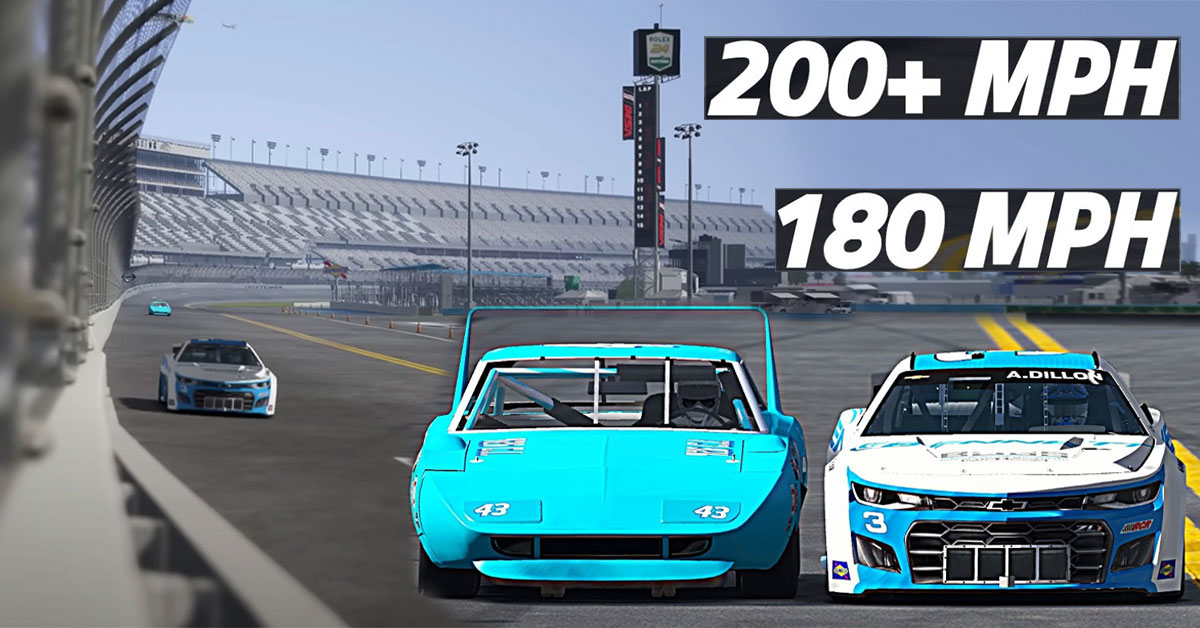Can An Old Car Without Restrictor Plates Be Faster?

Over the years, NASCAR has undergone significant evolution, not just in terms of its image, but notably in the transformation of the cars themselves.
In this particular demonstration, we witness a striking comparison between a 1970 Plymouth Superbird, in NASCAR Cup Series Trim, and a 2024 Camaro ZL1, also in Cup Series trim, on the hallowed grounds of Daytona International Speedway, a track that has withstood the test of time as the home of the race that’s akin to NASCAR’s Super Bowl.
Placing these two iconic vehicles side by side reveals numerous stark differences, too many to enumerate in a single article. Comparing a vintage 1970 Plymouth to a modern NASCAR racer is akin to contrasting the Wright brothers’ inaugural flight with a contemporary spacecraft, an analogy that encapsulates the massive technological leaps NASCAR has made. Today, the capabilities of these cars are off the charts as compared to cars from decades ago. Not only do they have the ability to perform better in every way, they are also safer to the point where death and serious injury behind the wheel just doesn’t happen anymore.
However, amidst these differences, one notable observation emerges: despite the technological advancements, NASCAR cars have, in some respects, slowed down over the years, particularly at tracks like Daytona… and it’s on purpose. Here, the introduction of restrictor plates, designed to limit top speeds and foster pack racing for added entertainment value, has influenced the pace of these machines.
Surprisingly, when we pit these two cars against each other on Daytona’s super speedway oval, whether the track is in its old or new configuration, the Superbird emerges as the faster contender. It’s an interesting nuance that we presume would only apply to such massive tracks like Daytona’s 2.5-mile oval.
Indeed, videos like the simulation below from THE WIND TUNNEL prompt reflection on the sport’s progression and, perhaps for some, raise questions about the need to occasionally take a step back to appreciate and learn from its storied past.

